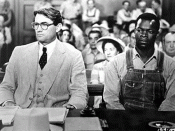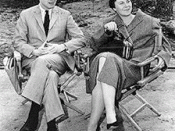Childhood is the most carefree part of a person's life. Children are instinctively pure creatures, unperturbed by the troubles that may surround them. Like the quote above states, the incidents they go through are simply black and white, good and bad. However, as they grow older, they lose their innocent state of mind. They are suddenly thrown into a world where they are constantly struggling to defeat the odds and are desperately seeking answers to life's questions. Is there anyone that helps them during this difficult time, to see the "shades of gray?" Of course, there can be many answers to this question, but I think the single most influential person who guides a child through this stage is a family member. Family is one of the most important factors that help shape a person's life. In the critically lauded and moving tales of "To Kill a Mockingbird" by Harper Lee and "Bless Me, Ultima" by Rudolfo Anaya, the protagonists are all children, newly thrust into the world, faced with extreme obstacles and situations that test their character.
Each one deals with these obstacles in different ways because of their different personalities. However, one thing is certain--the main characters of both novels overcome their hurdles and develop a strong level of morality along the way because they are guided by the love, understanding, and experience of their family members.
A major theme in To Kill a Mockingbird is the moral nature of humans. At the beginning of the novel, Scout and Jem live in their childhood world, intuitively assuming that everyone is good because not once in their lives have they seen what evil truly is. As Jem and Scout transition from their naïveté and innocence, Atticus is there every step of the way, in order to guide...


